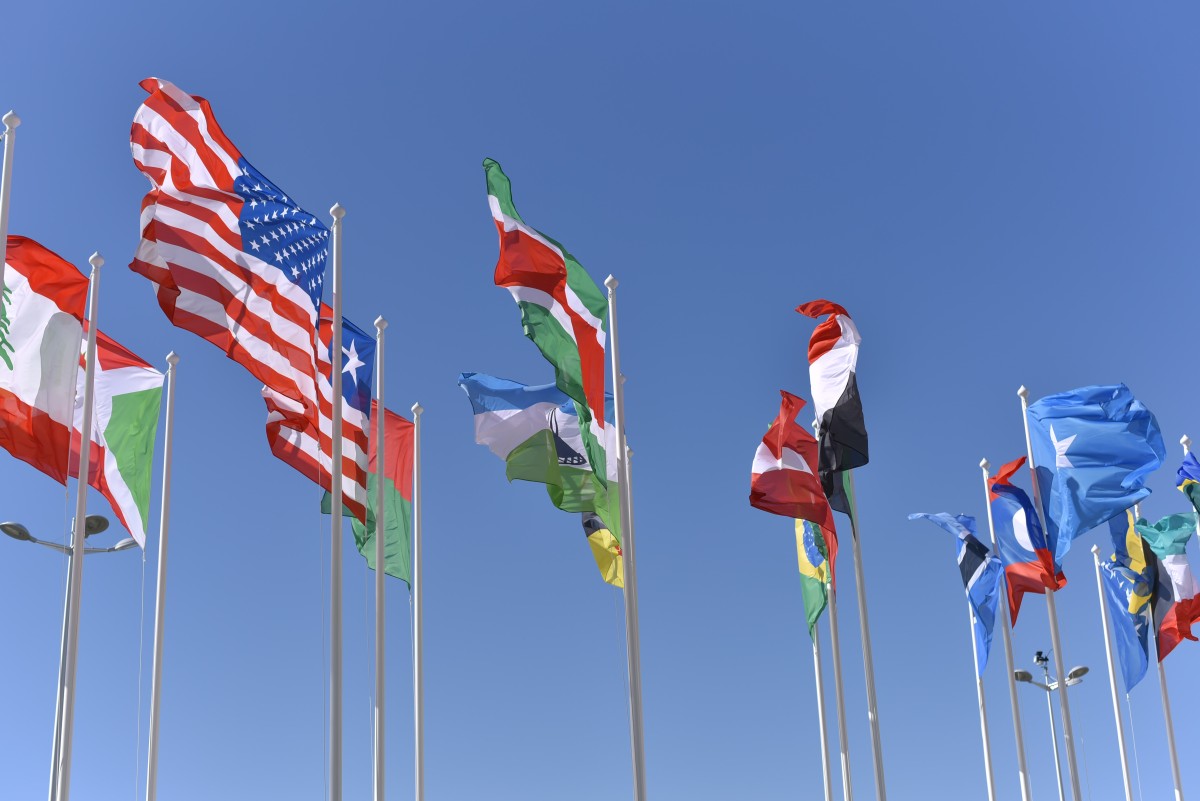Table of Contents
- 1. Economist
- 2. Diplomat
- 3. Political Analysthttps://bau.edu/blog/policy-analyst/
- 4. Lobbyist
- 5. Communications Officer
- 6. International Development Consultant
- 7. Immigration Specialist
- 8. Intelligence Analyst
- Key Skills and Qualifications for Careers in International Relations
- Frequently Asked Questions (FAQ):
In our increasingly interconnected world, and even if we look back in history, relationships between nations are of the utmost importance when it comes to facing global issues (such as pandemics, terrorism, and the environment), advancing human culture, conducting international trade, and business, etc.
International relations majors are designed to give students strong theoretical foundations on global societies and their interactions. Students will develop expertise in diplomacy and foreign policy. This degree includes coursework in law & ethics, political economy, diplomatic history, among other core and elective subjects.
Let’s take a look at some of the highest-paying and sought-after international studies major careers.
1. Economist
Economists use various computer programs to gather and present data. They advise private and government organizations on different aspects of economics, such as tax rates, health statistics, transportation, international trade, and development.
What does an economist do?
An economist’s tasks include:
- Designing and conducting research
- Identifying trends and formulating budget models
- Advising the government, agencies, corporations, and banks on adopting financial policies
- Compiling reports and illustrations of research findings
- Formulating data collection methods concerning finance, labor, agriculture, trade, etc.
Economist salary
The national average salary for an economist is $113,940 per year.
2. Diplomat

Diplomats (often referred to as Foreign Service Officers) represent their country and its interests abroad to ensure that diplomacy persists. These representatives are resilient negotiators who promote peace, protect citizens abroad, and encourage prosperity.
What does a diplomat do?
A diplomat’s responsibilities are:
- Building trust
- Overseeing international relations such as human rights, and the environment
- Negotiating treaties and global agreements
- Conducting consular activities
- Collaborating on economic issues
- Managing embassy operations
Diplomat salary
The national average salary for a diplomat is $75,260.
3. Political Analysthttps://bau.edu/blog/policy-analyst/
Political Analysts (also referred to as Political Scientists or Policy Analysts) research political systems, develop political theories through analysis of historical documents, and advise national leaders or management about a government’s policy and their implications for the government or the company.
What does a political analyst do?
A political analysts’ duties include:
- Monitoring national political trends, policy decisions, and legislation changes
- Writing political updates daily
- Generating materials for national and regional political briefings
- Gathering data from public opinion surveys, election results, and other sources
- Conducting statistical analysis
- Interpreting research findings
Political analyst salary
The national average salary for a political analyst is $62,782.
4. Lobbyist

These professionals use their political skills to influence governmental decisions and elected officials to vote in their organization’s best interests. Lobbyists obtain information on how political systems work effectively and are active at all levels of government.
What does a lobbyist do?
The duties of a lobbyist include:
- Ensuring clients’ policies are shared with government officials
- Communicating governmental and other parties’ reports and responses to team members and clients
- Researching and examining legislation and regulatory proposals
- Attending congressional hearings
Lobbyist salary
The average salary of a lobbyist is $67,010. However, the range typically falls between $92,263 and $157,866, depending on many factors such as state and education.
5. Communications Officer
Communications officers create communications content on behalf of an organization. They write press releases, develop blog content, and create social media posts. Usually, they get tasked with keeping tabs on campaign analytics and maintaining digital media archives.
What does a communication officer do?
A communication officer’s tasks are:
- Developing, writing, and editing materials such as press releases and social media content
- Promoting communications and marketing materials on social channels
- Tracking analytics
- Creating reports detailing successes and failures of campaigns
- Ensuring that all marketing material aligns with brand standards
Communication officer salary
The average annual salary for communications officers ranges from $79,885 to $110,117, with the average base salary of $61,807.
6. International Development Consultant

International development consultants (or advisers) advise and support international organizations such as government agencies, nonprofits, and private corporations. They work in a diverse sector, providing help to developing countries and communities around the world. They provide clients with the appropriate tool to achieve their goals. The approach used is to find long-term solutions to varying problems.
What does an international development consultant do?
An international development consultant’s job description includes:
- Helping people in need
- Providing technical expertise and support for global organizations
- Reviewing programs and organizational strategies
- Recommending changes in organizations’ best interests
- Creating reports
- Teaming up with other professionals
- Doing administrative duties
International development consultant salary
The annual average salary for an international development consultant is $83,140.
7. Immigration Specialist
Immigration specialists work under a group of lawyers. They study, inspect and review rules, regulative acts, fundamental laws, and documented principle policies of judicial organizations and foundations to estimate the modifications and alterations for numerous legal cases.
What does an immigrant specialist do?
An immigrant specialists’ tasks include:
- Translating judicial policies and its standard principles into simplified forms
- Assessing investigations
- Designing plans and defenses to formulate various ways of presenting legal and judicial proceedings.
- Instructing customers on various laws and policies
- Formulating visa papers
- Upholding their reports and presentations
Immigrant specialist salary
An immigration specialist’s annual average salary is $51,181, but the range typically falls between $64,776 and $89,656.
✅ Request information on BAU's programs TODAY!
8. Intelligence Analyst
Intelligence analysts work for government agencies and companies that work with the government to provide information on security threats. This profession involves working in an office environment; however, it often requires on-field exploration to understand situations better and conduct investigations.
What does an intelligence analyst do?
An intelligence analyst’s job includes:
- Identifying threats
- Providing recommendations on fighting crimes
- Utilizing information to develop assessments
- Collaborating with international and national contacts in the intelligence and law enforcement
- Applying knowledge and understanding of the language, culture, and history to fight threats
- Updating data to ensure information is up-to-date
Intelligence analyst salary
The average annual salary for an intelligence analyst is $75,349.
If you’ve asked yourself what can you do with a degree in international and global studies, these were just some of the positions waiting for you. There are many more high paying jobs in addition to these. However, we’ve chosen a few that stand out.
Key Skills and Qualifications for Careers in International Relations
Navigating a career in international relations requires unique skills and qualifications. Here are some key aspects to consider:
Strong Analytical Abilities
Professionals in international relations must possess robust analytical skills to dissect intricate political, economic, and social issues. They should excel in collecting information from various sources, synthesizing data, and identifying emerging trends and patterns. This analytical skill enables them to make informed decisions, devise effective strategies, and offer insightful policy recommendations.
Effective Communication Skills
Clear and concise communication forms the backbone of success in international relations. Professionals need to articulate complex ideas, negotiate agreements, and adeptly represent their organizations or governments on the global stage. Effective communication fosters mutual understanding, trust, and collaboration among stakeholders from diverse cultural and linguistic backgrounds.
Cultural Sensitivity and Language Proficiency
Cultural sensitivity is paramount in international relations. Professionals should demonstrate deep respect for different cultures and customs while embracing diversity. Language proficiency is valuable as it facilitates meaningful interactions and opens doors to deeper insights into foreign cultures and perspectives. Multilingualism can significantly enhance one’s ability to bridge gaps and build international relationships.
Research Skills
A solid research understanding is essential to staying well-informed about global policies, conflicts, and evolving developments. International relations experts must be adept at sourcing information, critically evaluating sources, and conducting comprehensive research to gain insights into global affairs. This skill equips them to make data-driven decisions and offer evidence-based policy recommendations.
Negotiation and Diplomacy
Negotiation and diplomacy are central to resolving conflicts, securing international agreements, and promoting cooperation between nations. Professionals in this field must be skilled negotiators and experts at navigating complex diplomatic discussions and forging consensus among parties with divergent interests.
Educational Background
A solid educational foundation is typically a prerequisite for careers in international relations. A bachelor’s degree in international relations, political science, international affairs, or a related field provides essential foundational knowledge. However, to enhance career prospects and expertise, many individuals pursue advanced degrees, such as a Master’s or Ph.D., which can provide a competitive edge.
If you found these international studies major jobs exciting and would like to make a career in any of them, check out our Bachelor of Arts in Political Science & International Relations degree.
Frequently Asked Questions (FAQ):
What is the average salary for an entry-level international relations job?
The average salary for entry-level positions in international relations can vary widely depending on location, organization type, and specific job roles. However, it often ranges from $40,000 to $70,000 or more per year.
How do salaries in international relations compare to other fields?
Salaries in international relations can vary significantly, but they tend to be competitive with other social science fields. However, careers in some specialized areas, such as international law or diplomacy, may offer higher earning potential.
Do professionals with advanced degrees in international relations earn more than those with bachelor’s degrees?
Generally, professionals with advanced degrees, such as master’s or Ph.D. degrees in international relations or related fields, have the potential to earn higher salaries compared to those with bachelor’s degrees. Advanced degrees often open up opportunities for more senior and specialized roles.










